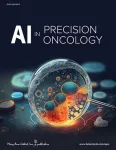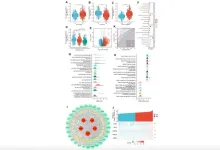(Press-News.org)
Clear legal rules outlining the use of the sperm and eggs of those who are incapacitated must remain in place to protect the vulnerable from being involved in fertility treatment without their consent, a new study says.
There are strict laws in England and Wales involving the use of reproductive materials, but the research outlines how recent court cases have weakened this existing rigorous consent regime.
It warns this could create a common law exception to informed consent, leaving the current law in a delicate position. The research says it is “not outside the realms of possibility” that some people may try to take advantage of the recent court cases to conceive their ‘perfect family’ without the knowledge of their incapacitated partner.
The Human Fertilisation and Embryology Act 1990 (as amended in 2008) stipulates that each party must give written, informed consent to ensure that our reproductive materials are used within strict parameters.
The landmark case of “Y v A Healthcare NHS Trust [2018] EWCOP18” caused significant concern when judges authorised the retrieval, storage and use of sperm from a suspected brain stem dead man for procreative purposes under the Mental Capacity Act 2005. The decision has since been confirmed as the correct approach by the Court of Protection in Re X (Catastrophic Injury: Collection and Storage of Sperm) [2022] EWCOP 48, and a public consultation was thereafter opened by the Human Fertilisation and Embryology Authority in Spring 2023 on the matter of consent. Presumed consent was suggested by the Authority as an alternative to informed consent, akin to the ‘opt-out’ system currently for organ donation in the UK. This idea seems to have been dropped as of early 2024, but the concern over incapacitated patients remains.
The study, by Lisa Cherkassky from the University of Exeter Law School, is published in the journal Legal Studies. It says the Human Fertilisation and Embryology Act 1990 (as amended in 2008) and its strict consent regime around informed consent should remain the ‘benchmark’ for lawful fertility treatment in the UK.
Dr Cherkassky said: “The consequences of the decision in Y v A Healthcare NHS Trust could be highly significant, raising questions about the exploitation of incapacitous patients and the misuse of genetic material.
“The legal preference for rigorous consent in medial care over the past three decades is appropriate, and any alternative forms of consent could open a slippery slope to the unethical use of vulnerable individuals for their reproductive materials.”
The UK has one of the most rigorous fertility legal frameworks in the world. The Human Fertilisation and Embryology Act 1990 (the 1990 Act) was the first attempt to regulate what quickly became a global race to create babies in vitro after the birth of Louise Brown in 1978.
The appeal courts have mostly adhered to the strict regime of the 1990 Act, sending a clear message to practitioners and patients that the informed consent of both gamete providers was the key to unlocking fertility treatment in the UK.
Dr Cherkassky said: “To authorise fertility treatment in the ‘best interests’ of a suspected brain stem dead patient, who has no capacity or understanding of the procedure or its consequences, could not only be viewed as illogical, but runs the risk of ‘plundering’ vulnerable patients for their reproductive materials in a highly invasive and arguably sexual way. It could also bring the law and the medical profession into disrepute by performing medical procedures upon incapacitous patients on the request of third parties with no clear benefit to the patient.
“The 1990 Act does not allow for an ‘inferred’ or a ’presumed’ consent to fertility treatment; it requires written consent to the posthumous use of embryos under Schedule 3. Yet recent cases show a judicial trend towards authorising fertility treatment without the consent of one gamete provider where they can no longer consent for themselves.
“The right of withdrawal (from fertility treatment) is granted in recognition of the dignity to which each individual is entitled. Such must include an individual's right to control the use of their own genetic material. In my judgement, it would be contrary to public policy for courts to enforce agreements to allow use of genetic material where informed consent is lacking.
“Ethically it would be very difficult to support the use of patients who lack capacity in assisted reproductive technology if they did not consent to it in advance, for reasons of dignity, confidentiality, genetic destiny, public policy, and the individual's right to choose parenthood.
“The chances of a similar case coming before the Court of Protection in the future are high. The next ‘incapacitous retrieval’ case will be just around the corner. In the hope that the decision in Y v A Healthcare Trust has not led to a total disarticulation of the 1990 Act, the next case is greatly anticipated and it is hoped that the decision will adhere to the clear rule of law on informed consent to the storage and use of gametes to prevent any further legal and ethical uncertainty.”
END
Clear legal rules about the use of sperm and eggs in fertility treatment must remain to protect the vulnerable, study says
2024-01-30
ELSE PRESS RELEASES FROM THIS DATE:
New interview with Eric Topol, MD, on the state of artificial intelligence in precision oncology
2024-01-30
An interview with Eric J. Topol, MD, a world-renowned cardiologist, best-selling author of several books on personalized medicine, and the founder and director of the Scripps Research Translational Institute in La Jolla, California, has been published. in the new peer-reviewed journal, AI in Precision Oncology. Dr. Topol is an advocate for using digital technologies and artificial intelligence in health care. click here to read the interview now.
Douglas Flora, MD, Editor-in-Chief of AI in Precision Oncology, interviewed Dr. ...
Rotman School Professor named to Thinkers50 Radar Class
2024-01-30
Rotman School Professor Named to Thinkers50 Radar Class
Toronto – Maja Djikic, an associate professor of organizational behaviour and human resource management at the University of Toronto’s Rotman School of Management, has been named to the Thinkers50 Radar class for 2024.
Announced every January, the Thinkers50 Radar identifies a cohort of 30 up-and-coming thinkers from around the world whose ideas have the potential to make an important impact on management thinking in the future.
A personality psychologist specializing in adult development, Prof. Djikic is executive director of the Self-Development Lab at the Rotman School, which provides ...
Researchers find early symptoms of psychosis spectrum disorder in youth higher than expected
2024-01-30
A new study co-led by Associate Professor Kristin Cleverley of the Lawrence Bloomberg Faculty of Nursing has found evidence that Psychosis Spectrum Symptoms (PSS) are often present in youth accessing mental health services.
From a profile of the initial 417 youth aged 11-24 participating in the study, 50 per cent were shown to meet the threshold for Psychosis Spectrum Symptoms, a number Cleverley says was higher than expected, meaning there is a large number of children with these symptoms accessing mental health services.
Cleverley, ...
Pitt receives new grant to improve opioid use disorder treatment
2024-01-30
PITTSBURGH – The University of Pittsburgh School of Pharmacy’s Program Evaluation and Research Unit (PERU) has received a five-year, $7.8 million grant from the National Institute on Drug Abuse to improve quality of care for patients with opioid use disorder across Pennsylvania.
The project will establish the Helping to End Addiction Long-term (HEALing) Measures Center at Pitt, which will focus on developing and implementing measurement-based care into 20 community opioid treatment programs across Pennsylvania with the goal of enhancing treatment ...
Researchers craft new way to make high-temperature superconductors – with a twist
2024-01-30
An international team that includes Rutgers University–New Brunswick scientists has developed a new method to make and manipulate a widely studied class of high-temperature superconductors.
This technique should pave the way for the creation of unusual forms of superconductivity in previously unattainable materials.
When cooled to a critical temperature, superconductors can conduct electricity without resistance or energy loss. These materials have intrigued physicists for decades because they can achieve a state of ...
Study suggests secret for getting teens to listen to unsolicited advice
2024-01-30
A new study may hold a secret for getting your teenager to listen to appreciate your unsolicited advice.
The University of California, Riverside, study, which included “emerging adults” — those in their late teens and early 20s — found teens will appreciate parents’ unsolicited advice, but only if the parent is supportive of their teens’ autonomy.
Parents support autonomy by providing clear guidelines for limitations and rules that will be enforced. They ...
Tech inefficiencies, piles of (electronic) paperwork, and increased patient volume contribute to burnout of primary care physicians, study finds
2024-01-30
Burnout is an occupational phenomenon that results from chronic workplace stress, according to the World Health Organization. Burnout often includes emotional exhaustion, negative feelings or mental distance from one’s job, and a low sense of accomplishment at work. COVID-19 increased feelings of burnout in primary care physicians, and a new study, sought to understand primary care clinicians’ perspectives on burnout during the COVID-19 pandemic, the causes of burnout, and strategies to improve clinician well-being.
Inefficiencies of electronic health records systems and high levels of documentation contribute ...
XRCC1: A potential prognostic and immunological biomarker in low-grade gliomas
2024-01-30
“We conducted a comprehensive investigation into the potential of XRCC1 as a valuable diagnostic and prognostic indicator in diverse cancer types.”
BUFFALO, NY- January 30, 2024 – A new research paper was published in Aging (listed by MEDLINE/PubMed as "Aging (Albany NY)" and "Aging-US" by Web of Science) Volume 16, Issue 1, entitled, “XRCC1: a potential prognostic and immunological biomarker in LGG based on systematic pan-cancer analysis.”
X-ray repair cross-complementation ...
Functional bladder tissue regenerated using bone marrow cells
2024-01-30
Scientists from Stanley Manne Children’s Research Institute at Ann & Robert H. Lurie Children’s Hospital of Chicago and Northwestern University succeeded in regenerating fully functional urinary bladder tissue in a long-term study utilizing a non-human primate model. This unique model initially created by the Sharma Research Group explores long term bladder tissue regeneration at both anatomical and physiological levels. The Group used a novel biodegradable scaffold seeded with stem and progenitor cells from the animal’s own bone marrow, which demonstrated a higher degree of success than intestinal segments ...
Tribal program takes addiction treatment on the road
2024-01-30
With the national opioid epidemic disproportionately affecting American Indians and Alaska Natives, a tribal confederation in Oregon decided to take matters into their own hands.
The Confederated Tribes of Grand Ronde not only opened Oregon’s first tribally owned opioid treatment program in Salem in 2021, but a year later, the tribe also began what is believed to be the nation’s first tribally operated mobile medication unit. The mobile bus runs a daily circuit from the tribal reservation in Grand Ronde to McMinnville to Salem, seeing patients and dispensing medications directly to tribal members struggling with an opioid use disorder.
The program appears ...




